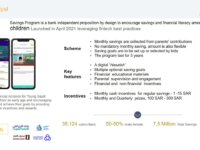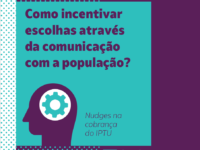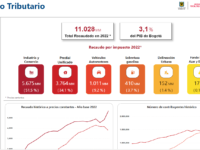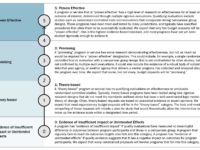A savings Program that is designed to encourage savings and financial literacy amongst Saudi children and providing financial inclusion for Young Saudi population (>18) from an early age and encouraging them to save and achieve their goals by providing attractive incentives and rewards and leveraging fintech best practices while applying behavioural economics.
Innovation Tag: Finance and Budgeting
The Electronic Family Wallet (Bolsillo Familiar Electrónico) is an innovation in technological services from Chile. It is an electronic payment system facilitates the delivery and use of the monthly monetary contribution that more than 1.4 million people will receive from May 2023, for exclusive use in purchases in food businesses.
The MAP |Early Warning Mechanism is an online and free tool that places Portugal in a pioneering path at the level of the EC and the OECD, for the support given to companies in an early stage of their financial problems and/ or levering their growth.
It provides indicators allowing capacity building of entrepreneurs, better-informed decision-making processes, and more efficient and sustainable management. The results achieved prove the success of this tool, as referred in 3.5.
Individuals often experience managing tasks related to individual finances and debt as burdensome and shameful. As a response, Financial advice clinics in Finland provide anonymous, low-threshold guidance and advice for citizens with small and large financial questions without booking an appointment. Citizens have the possibility to meet professionals from different fields simultaneously, and receive help for their financial issues at the same location.
The Sola calculation tool allows estimate the economic impact of 25 distinct social phenomena at municipal, regional and national level. Impact assessments at one, five and ten year intervals can lead decision-makers to better understand how to invest in wellbeing and accelerate impact investing. Results of the tool have been used in several municipalities as part of health and wellbeing promotion. A MOOC course has been developed and similar calculation tools are recently being used in other…
In this project, São Paulo City Hall tested and evaluated the reformulation of collection instruments taking into account behavioral aspects. Currently the relationship between the City Hall and taxpayers is based on repressive inspections, difficult to understand communications and complex flows of payments. With the reformulation of how the IPTU is collected, this increased the municipal tax collection by R $ 60 million/ year. Further experiments have allowed for the estimation that an…
Case Study
Trusted Official Statistics for Good Governance and Evidence Based Decision Making in Vanuatu

The Parliament of Vanuatu has struggled to fulfil its legislative, budget, oversight, and representation functions due to limited capacity to utilise trusted statistics. The Vanuatu Bureau of Statistics addressed this capacity gap through targeted training with Members of Parliament (MPs) and parliamentary civil servants to improve policy making. This is the first focused effort in Vanuatu to introduce data for sustainable development monitoring to MPs with the aim of enhancing good governance.
FiscalData is an innovative tool created for the analysis of Bogota, Colombia's fiscal situation. It promotes transparency around local public sector finances. FiscalData seeks to benefit the citizens of Bogotá by serving as a mechanism for participation on fiscal issues between civil society and the public and private sectors.
The innovation consisted in implementing a policy delivery methodology (Deliverology(R)) in 14 public primary healthcare establishments of Cusco’s Northern health network. The aim was to transform the service culture and improve prenatal, postpartum, family planning, and pediatric care indicators in only 5 months, benefiting 22,900 low-income patients.
Governments must judge hundreds of new programmatic budget proposals each fiscal year with little objective information about whether they will achieve the results claimed. Evidence of program effectiveness is a critical data point that is used when making budget and policy decisions, as programs with greater evidentiary support are generally more likely to deliver a high return on investment of public funds. The The Policy Lab at Brown University leveraged existing public clearinghouses of peer…





